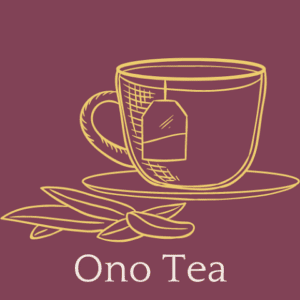In a world dominated by hustle culture, constant notifications, and endless to-do lists, maintaining mental clarity and focus can feel like an uphill battle. For many, the go-to solution is a steaming cup of coffee or an energy drink packed with caffeine. While caffeine certainly has its merits—offering a quick jolt of alertness—it’s not without downsides: jitters, crashes, and dependency. But what if there were a gentler, more sustainable way to sharpen your mind and enhance focus? Enter herbal tea—a caffeine-free elixir that’s been celebrated for centuries for its calming, clarifying, and cognition-boosting properties.
Herbal teas, often called tisanes, are infusions made from herbs, spices, fruits, flowers, or roots. Unlike true teas (black, green, or white), which come from the Camellia sinensis plant and contain caffeine, herbal teas are naturally free of stimulants. Yet, they’re far from powerless. Modern science and ancient wisdom alike suggest that certain herbal blends can enhance mental clarity, improve concentration, and promote a sense of calm focus—without the rollercoaster ride of caffeine. In this article, we’ll explore how herbal tea works its magic on the mind, spotlight key herbs that boost focus, and offer practical tips for incorporating these brews into your daily routine.
The Mental Clarity Challenge
Before diving into the benefits of herbal tea, it’s worth understanding why mental clarity is so elusive in the first place. Our brains are bombarded daily with information overload—emails, social media, and multitasking all compete for our attention. Stress, poor sleep, and even dehydration can further cloud our thinking. Caffeine might offer a temporary fix by stimulating the central nervous system, but it doesn’t address the root causes of mental fog. Worse, it can exacerbate anxiety or disrupt sleep, creating a vicious cycle of fatigue and dependence.
Herbal teas, on the other hand, take a holistic approach. Rather than forcing alertness through stimulation, they nourish the nervous system, reduce stress, and enhance cognitive function through natural compounds like antioxidants, adaptogens, and anti-inflammatory agents. The result? A steady, grounded sense of focus that doesn’t leave you wired or wiped out.
How Herbal Tea Boosts Focus
The power of herbal tea lies in its ingredients—plants that have evolved over millennia to support human health. While each herb brings its own unique benefits, they often work synergistically to promote mental clarity. Here’s how they do it:
- Reducing Stress and Anxiety: Chronic stress is a major culprit behind brain fog. Herbs like chamomile, lavender, and lemon balm have calming properties that lower cortisol levels, helping the mind settle into a state of relaxed alertness.
- Enhancing Blood Flow to the Brain: Improved circulation delivers oxygen and nutrients to brain cells, sharpening focus and memory. Herbs like ginkgo biloba and rosemary are known for their vasodilatory effects, supporting cerebral blood flow.
- Supporting Neurotransmitter Balance: Certain herbs influence the production or activity of neurotransmitters like dopamine and serotonin, which regulate mood, attention, and cognitive performance. Holy basil (tulsi) and peppermint are prime examples.
- Fighting Oxidative Stress: Antioxidants in herbs such as rooibos and hibiscus protect brain cells from damage caused by free radicals, preserving long-term cognitive health.
- Promoting Restful Sleep: Mental clarity isn’t just about what happens during the day—it’s also about recovery at night. Herbs like valerian root and passionflower improve sleep quality, ensuring you wake up refreshed and focused.
Unlike caffeine, which provides a quick spike in energy followed by a crash, these effects build gradually and sustainably. Herbal teas offer a gentle lift, aligning with the body’s natural rhythms rather than overriding them.
Key Herbs for Mental Clarity
Let’s take a closer look at some standout herbs that can transform your tea cup into a focus-enhancing tonic. Each has a rich history of use in traditional medicine, backed by growing scientific interest.
- Peppermint (Mentha piperita): The invigorating aroma of peppermint alone can wake up a sluggish mind. Studies suggest that inhaling peppermint essential oil improves attention and memory, while drinking peppermint tea offers a refreshing, cooling sensation that sharpens focus. Its menthol content may also stimulate blood flow, keeping your brain oxygenated and alert.
- Ginkgo Biloba: Used for thousands of years in Chinese medicine, ginkgo is a superstar for cognitive health. It’s believed to enhance memory and concentration by improving circulation and protecting neurons from oxidative stress. While ginkgo tea isn’t as common as supplements, steeping the dried leaves creates a mild, earthy brew with brain-boosting potential.
- Rosemary (Rosmarinus officinalis): “Rosemary for remembrance,” as Shakespeare wrote, isn’t just poetic folklore. Research shows that rosemary’s compounds, like 1,8-cineole, can enhance cognitive performance and mood. Sipping rosemary tea or even inhaling its steam may improve mental clarity and alertness without overstimulation.
- Holy Basil (Tulsi, Ocimum sanctum): Revered in Ayurveda as an adaptogen, tulsi helps the body adapt to stress while balancing energy levels. It’s been shown to reduce anxiety and improve cognitive function, making it ideal for maintaining focus during demanding tasks. Its slightly spicy, uplifting flavor adds a pleasant twist to tea blends.
- Lemon Balm (Melissa officinalis): This gentle herb combines calming and cognition-enhancing effects. Studies indicate that lemon balm can improve mood, reduce stress, and boost alertness—perfect for those moments when you need to focus without feeling frazzled.
- Gotu Kola (Centella asiatica): Another gem from Ayurveda, gotu kola is prized for its ability to enhance memory and mental clarity. It’s thought to support brain repair and improve circulation, offering a subtle lift in cognitive performance. Its mild, grassy taste pairs well with other herbs.
These herbs can be enjoyed solo or blended for a synergistic effect. For example, a mix of peppermint, rosemary, and ginkgo could deliver a triple threat of alertness, circulation, and memory support.
The Ritual of Tea: Mindfulness Meets Focus
Beyond the herbs themselves, the act of preparing and drinking tea can enhance mental clarity. Brewing a cup forces you to slow down, step away from distractions, and engage your senses. The warmth of the mug in your hands, the aroma wafting up, the first soothing sip—these moments create a mini-ritual that grounds you in the present. Mindfulness, even for a few minutes, has been shown to improve attention and reduce mental clutter.
Compare this to chugging a coffee on the go. Caffeine might get you through the next hour, but it rarely invites reflection or calm. Herbal tea, by contrast, aligns with a slower, more intentional approach to productivity. It’s focus with finesse.
Practical Tips for Incorporating Herbal Tea Into Your Day
Ready to swap your coffee for a clarity-boosting brew? Here’s how to make herbal tea a seamless part of your routine:
- Morning Boost: Start your day with a stimulating blend like peppermint and rosemary. Add a touch of honey if you like a hint of sweetness. This sets a focused tone without the caffeine jitters.
- Midday Reset: When the afternoon slump hits, reach for ginkgo or tulsi tea. Pair it with a five-minute break to breathe deeply and recharge.
- Evening Wind-Down: Support tomorrow’s clarity by winding down with lemon balm or chamomile. These calm the mind and promote restful sleep, ensuring you wake up sharp.
- Experiment with Blends: Don’t be afraid to mix and match. A combo of gotu kola, peppermint, and a dash of hibiscus can be both refreshing and brain-boosting.
- Stay Hydrated: Dehydration dulls cognition, so sipping herbal tea throughout the day keeps your brain humming. Aim for 2-3 cups, adjusting based on your needs.
- Quality Matters: Opt for loose-leaf teas or high-quality tea bags from reputable brands to maximize flavor and potency. Organic options minimize pesticide exposure.
The Science Behind the Sip
While herbal traditions stretch back centuries, modern research is beginning to validate these ancient remedies. A 2014 study published in Phytomedicine found that lemon balm improved cognitive performance and reduced stress in healthy adults. Another study from 2018 in Nutrients highlighted rosemary’s potential to enhance memory and concentration, linking its effects to specific phytochemicals. Meanwhile, a 2020 review in Frontiers in Pharmacology praised ginkgo biloba for its neuroprotective and circulation-boosting properties, particularly in older adults.
That said, herbal teas aren’t a magic bullet. Their effects are subtler than caffeine’s immediate kick, and individual responses vary. Consistency is key—think of them as a long-term investment in mental wellness rather than a quick fix.
Why Ditch Caffeine?
Caffeine has its place, but it’s not for everyone. For those sensitive to stimulants, prone to anxiety, or looking to reduce dependency, herbal tea offers a compelling alternative. It sidesteps the adrenal fatigue and sleep disruption that can accompany coffee, fostering a balanced energy that lasts. Plus, with no risk of withdrawal headaches, it’s easier to adjust your intake as needed.
A Cup of Clarity
In a fast-paced world, mental clarity is a precious commodity. Herbal tea offers a natural, caffeine-free path to sharper focus, calmer nerves, and brighter thinking. Whether you’re drawn to the zing of peppermint, the wisdom of ginkgo, or the serenity of lemon balm, there’s a blend to suit your mind and mood. So, the next time you feel your focus slipping, skip the espresso and steep some herbs instead. Your brain—and your nerves—will thank you.

